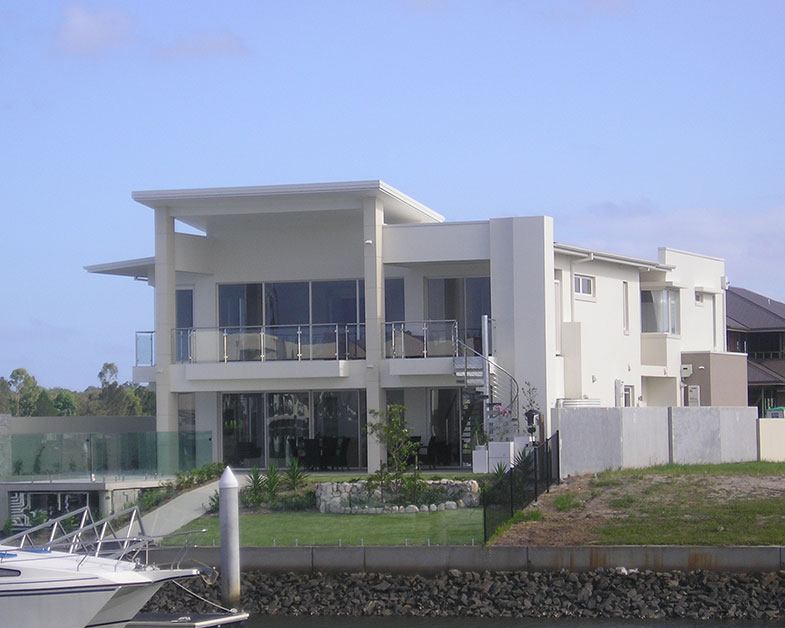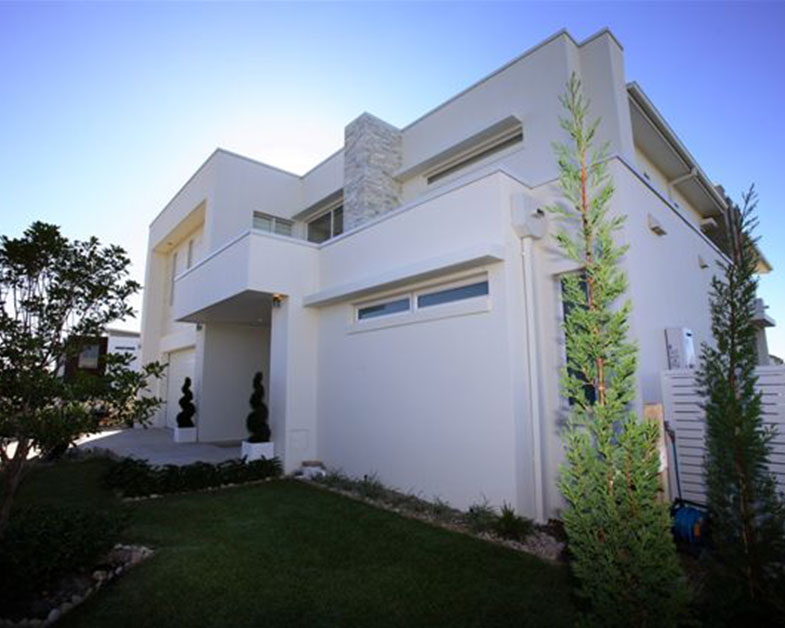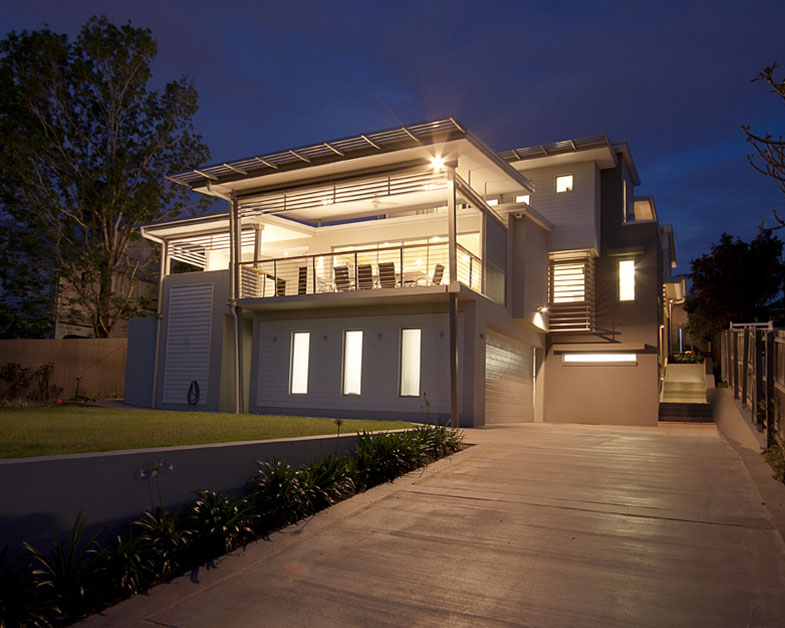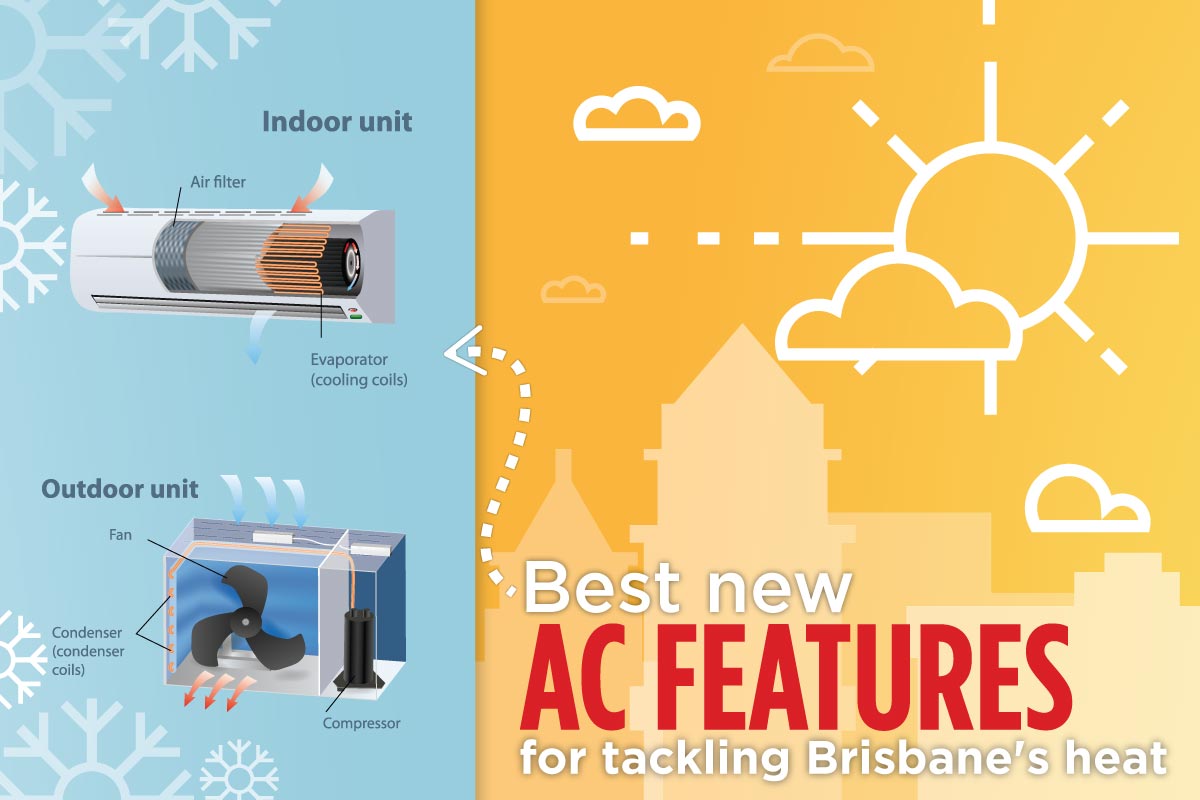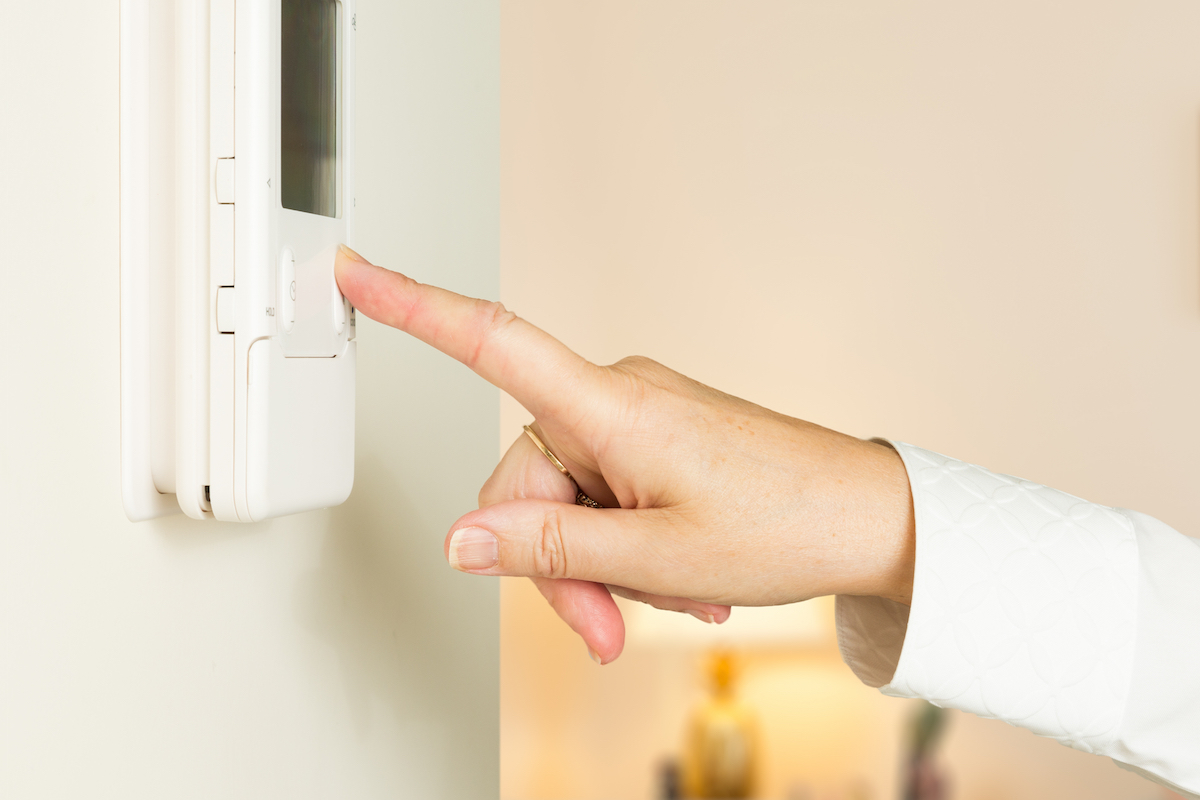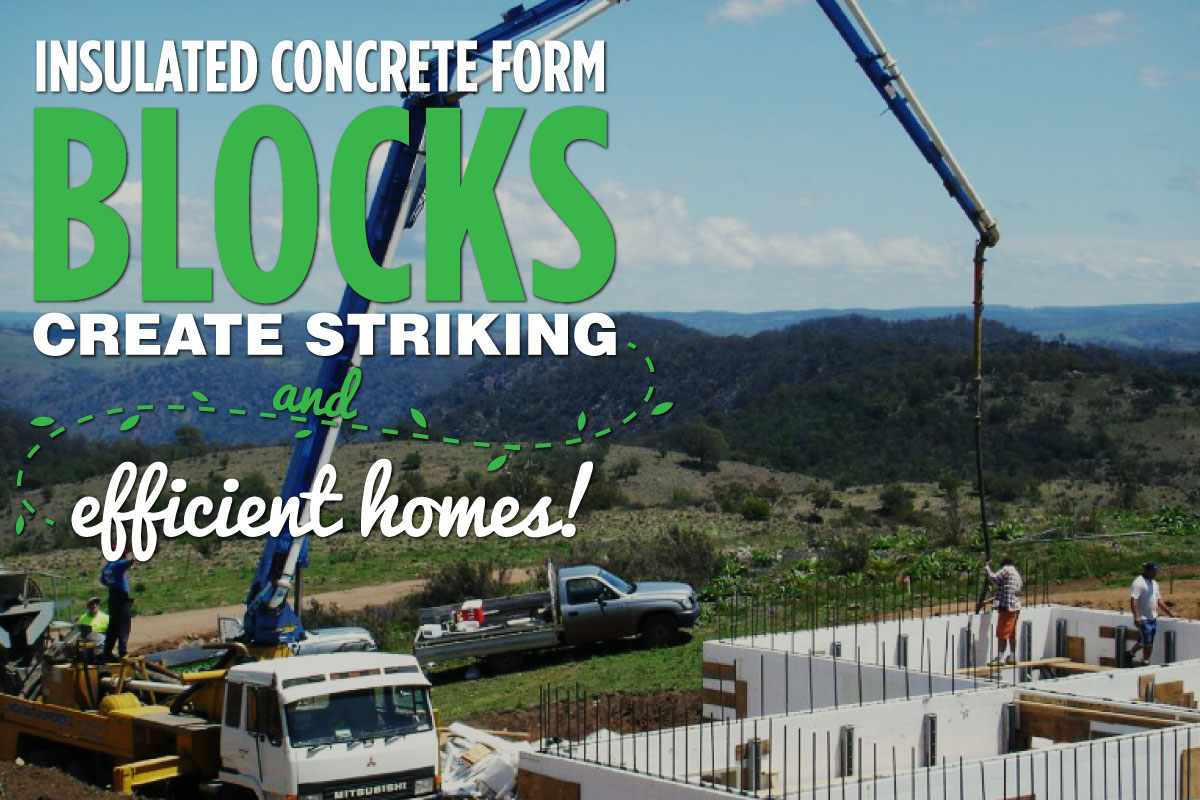
INSULATED CONCRETE FORM HOMES are stronger, better built, healthier, cost effective, sound proofed, fire resistant and much more!
Find out about the features on an ICF home.
Insulated Concrete Forms, also known as ICF, are modular units in the form of interlocking blocks or panels. The blocks are manufactured from polystyrene or polyurethane foam, once installed into place are filled with concrete. To simplify, think hollow lego blocks being filled with concrete!
This building process originated in Europe during the mid-20th century and only recently has started to take off in the land down under. The reason these ICFs are taking off is due both to their appearance, and also to their impressive structural capabilities.
Some key reasons builders are choosing ICFs include:
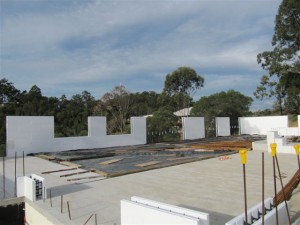
Photo Credit: Eco-Block
Thermal mass
Insulated Concrete Forms act as an insulator keeping a consistent core temperature. This is especially good for the harsh Australian climate, especially during the warmer months.
Sound insulation
The combination of a polystyrene foam insulation and an air-tight concrete fill makes ICF homes extremely well insulated.
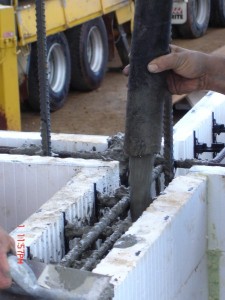
Photo Credit: Eco-Block
Fire resistance
If you live in a bushfire prone area, then ICF homes could be for you – the polystyrene found within the blocks are non-flammable! However, they are known to melt when exposed to extreme fire conditions. This unique feature provides an alternative to flammable materials such as wood.
Vermin resistance
The foam insulation and concrete filling provide no food value to pests and, as a result, does not tend to attract infestations. Say goodbye to termites for good!
Durability and moisture resistance
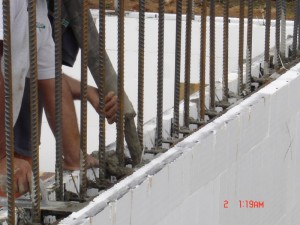
Photo Credit: Eco-Block
The durability with Insulated Concrete Forms is considered excellent. Houses constructed with ICF blocks have, over the years, proven resistance to earthquakes, fires and cyclones. The materials within the blocks will normally suffer a little, and sometimes not at all, over the course of a house’s life.
ICFs use concrete (one of the largest contributors to climate change), plastic (derived from oil), and steel. However, ICF blocks are considered more sustainable than most building practices due to their very long life and, as a result, the energy investment is recouped over many decades.

